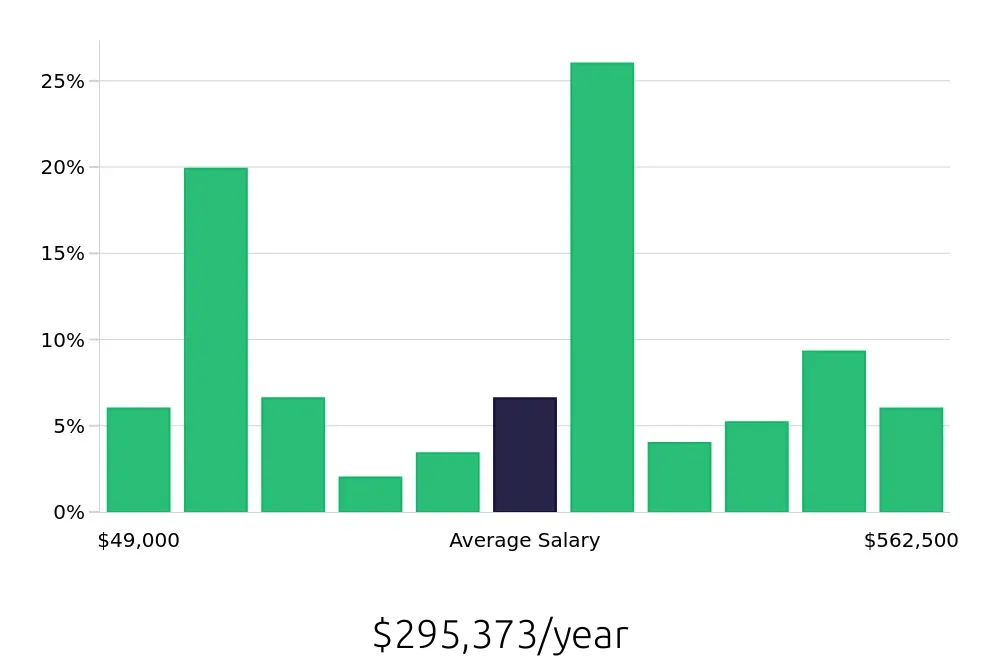Position
Overview
An Interventional Pain Physician specializes in managing and treating chronic pain. They focus on using minimally invasive procedures to alleviate pain and improve patient quality of life. These procedures often include nerve blocks, spinal injections, and other techniques. The goal is to provide long-lasting relief and reduce the need for medication.
Interventional Pain Physicians work closely with a team of healthcare professionals. This team might include physical therapists, psychologists, and primary care doctors. They collaborate to create personalized treatment plans for each patient. This ensures a comprehensive approach to pain management. Patients benefit from both medical interventions and supportive therapies.
Becoming an Interventional Pain Physician involves a clear path of education and training. This profession demands a commitment to learning and a dedication to patient care. The journey starts with a strong educational foundation and progresses through various stages of medical training.
Interventional Pain Physicians must first earn a bachelor’s degree, preferably in a science-related field. Following this, they attend medical school, which takes four years. Graduates then complete a residency program in anesthesiology, physical medicine, and rehabilitation, or neurology. After residency, further training in a pain medicine fellowship is necessary. This specialized training focuses on advanced techniques in pain management.
The journey to becoming an Interventional Pain Physician demands dedication and a clear path. It takes many years of hard work and education. First, one must complete a four-year undergraduate degree. This often involves a strong focus on science courses.
After earning a bachelor's degree, the next step is medical school. This takes four more years. During this time, students learn about various medical fields. After medical school, a residency in anesthesiology follows. This residency lasts four years. It teaches doctors how to manage pain. Finally, a fellowship in pain management adds another one to two years. This step focuses on specialized pain treatments. Completing this fellowship makes one a certified Interventional Pain Physician.
We are seeking a skilled Interventional Pain Physician to join our team. The ideal candidate will be responsible for diagnosing and treating chronic pain through various interventional procedures. This role requires a compassionate approach and the ability to work collaboratively with other healthcare professionals.
Responsibilities:
Qualifications
Working as an Interventional Pain Physician offers a unique blend of medical expertise and patient care. This career path combines traditional medicine with specialized procedures. Interventional Pain Physicians focus on managing pain through targeted treatments. They often perform minimally invasive procedures to diagnose and treat chronic pain conditions. The role demands a deep understanding of both pain management and procedural techniques.
Choosing this path involves weighing several pros and cons. On the positive side, Interventional Pain Physicians enjoy the satisfaction of significantly improving patients' quality of life. They also have the opportunity to work with cutting-edge medical technology. The role often comes with a competitive salary and job stability. However, this career can be demanding. Long hours and high-stress situations are common. The need for continual learning and staying updated with new techniques can be challenging. Balancing patient care with procedural work requires excellent time management skills.
Here are some pros and cons to consider:
The job outlook for Interventional Pain Physicians remains promising, with an average of 9,900 positions available each year. This number is essential for job seekers looking to enter or transition into this specialized field. The Bureau of Labor Statistics (BLS) projects a 3% growth in job openings from 2022 to 2032. This modest growth reflects a stable demand for skilled professionals in this niche area of medicine.
Interventional Pain Physicians earn a strong income, with an average national annual compensation of $248,640. This figure highlights the financial benefits that professionals can expect in this career. Additionally, the average national hourly compensation stands at $119.54, providing another perspective on the earnings potential. These figures are important for job seekers considering the financial stability and rewards of this profession.
For those seeking a fulfilling career with steady job growth and competitive compensation, Interventional Pain Physician roles offer an excellent opportunity. With a growing need for specialized medical care, these positions are both rewarding and in demand. Job seekers should consider the positive job outlook, strong earnings, and the potential for professional growth when evaluating this career path.
